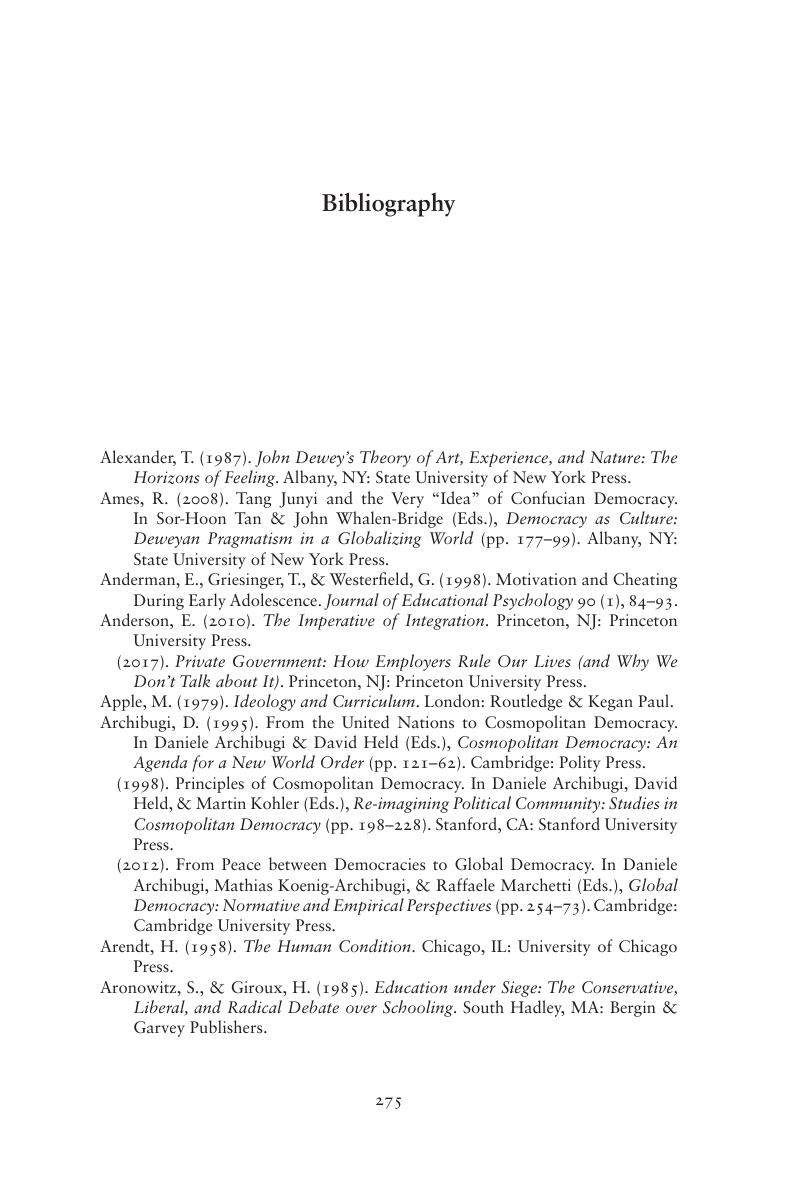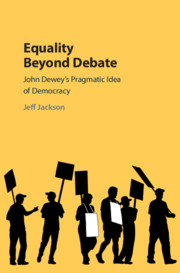Book contents
- Equality Beyond Debate
- Equality Beyond Debate
- Copyright page
- Dedication
- Contents
- Acknowledgments
- Introduction
- 1 The Democratic Individual
- 2 The Hegelian Development of Deweyan Democracy
- 3 The Pursuit of Democratic Political Institutions
- 4 From Deliberative to Participatory Democracy1
- 5 Agonism, Communitarianism, and Cosmopolitanism
- 6 Educating Democratic Individuals
- Conclusion
- Bibliography
- Index
- References
Bibliography
Published online by Cambridge University Press: 02 October 2018
- Equality Beyond Debate
- Equality Beyond Debate
- Copyright page
- Dedication
- Contents
- Acknowledgments
- Introduction
- 1 The Democratic Individual
- 2 The Hegelian Development of Deweyan Democracy
- 3 The Pursuit of Democratic Political Institutions
- 4 From Deliberative to Participatory Democracy1
- 5 Agonism, Communitarianism, and Cosmopolitanism
- 6 Educating Democratic Individuals
- Conclusion
- Bibliography
- Index
- References
Summary

- Type
- Chapter
- Information
- Equality Beyond DebateJohn Dewey's Pragmatic Idea of Democracy, pp. 275 - 288Publisher: Cambridge University PressPrint publication year: 2018



